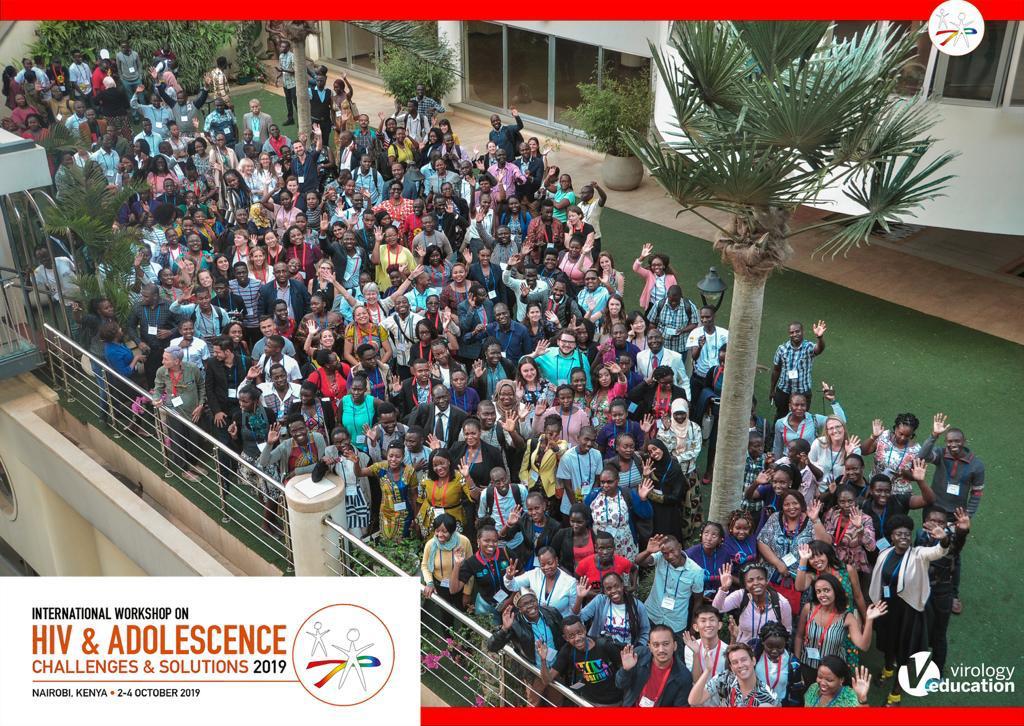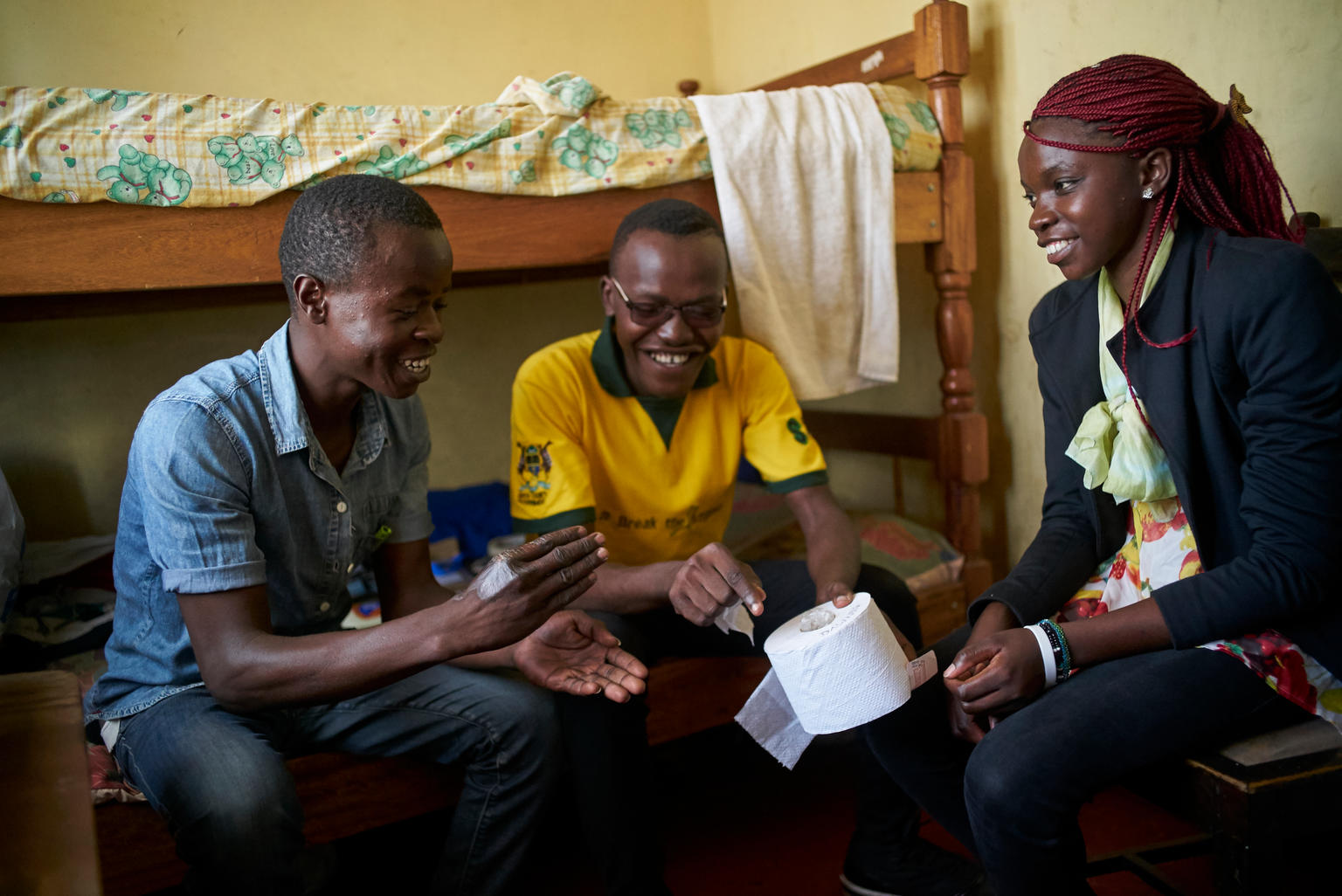|
Ayisi Addo S, et al. ‘Preliminary impact of an Integrated Maternal and Child Health Record Book on early infant diagnosis coverage for HIV exposed infants in the Brong Ahafo Region of Ghana’.
- The Integrated Maternal and Child Health Record Book is a new tool developed by the Ministry of Health and Ghana Health Service with technical and financial support from Japan International Cooperation Agency (JICA). The recording system helped identify more HIV positive mothers whose children have not had early infant diagnosis (EID) tests and link the infants to testing and treatment. Midwives at antenatal clinics and community health nurses at child clinics in the Brong Ahafo Region of Ghana were trained to issue record books integrated for maternal and child health services. In the first quarter of 2019, testing coverage for infants in the region increased to 88 per cent compared to 35.5 per cent in Q1 of 2018 and significantly improved the identification of infants living with HIV.
|
|
Ashikoto S, et al. ‘Namibia Experience and Lessons Learned on the Teen Club Service Delivery Model’.
- In Namibia, teen clubs have shown to be a promising approach to addressing the unique needs of adolescents living with HIV since 2010. This abstract presented results of a documentation process on the impact and lessons learned from implementation thus far. Currently, about 30 per cent of all adolescents living with HIV in Namibia regularly attend a Teen Club. The leadership of the Ministry of Health and effective collaboration with a range of partners have been an important part of facilitating these clubs. For adolescents, scheduling during out of school hours, combining with clinic appointment schedules and providing transportation costs were shown to barriers to participation.
|
|
Conway M, et al. ‘The Development and Initial Implementation of a National Framework of Standardized Psychosocial Support for All Children and Adolescents Living with HIV in Kazakhstan’.
- UNICEF Kazakhstan initiated a national programme in response to the need for psychosocial support for children and adolescents living with HIV. A multidisciplinary advisory group developed the National Standards for Psychosocial Care for Children and Adolescents Living with HIV, which was adopted by the Ministry of Health in May 2019. These standards include guidance for the care of children and adolescents from the moment they are diagnosed with HIV through to their transition into adult care. They extend beyond care that addresses biomedical needs to also promote holistic models of child-centred assessment and practice, communication among families and children, adherence to treatment, and supportive dialogue involving children and adolescents living with HIV as partners. The first national camp for psychosocial support was held in 2019 for 80 children and adolescents living with HIV. UNICEF and Karaganda State University are working together to integrate these standards into national education curriculums and additional programmes are planned to expand the availability and quality of psychosocial support.
|
|
Nchephe M, et al. ‘Let Youth Lead: Adolescent participation through social accountability to improve the quality of health services’.
- Let Youth Lead is an initiative to improve the quality of adolescent-friendly health services and access to sexual and reproductive health (SRH) services for adolescents and young people in Lesotho. This paper presented community score cards as a tool for social accountability. The score cards, developed through participatory methods, collected adolescents’ and young people’s perceptions on services and compared them with service provider measures for a quarterly monitoring and programme adjustment review process. Overall, 41 health centres are participating in the process and more than 3,000 young people have participated in using the score cards. Service provider knowledge on adolescent-friendly health services increased by 40 per cent and young people’s knowledge of their SRH rights improved by 42 per cent.
|
|
Juma, R., ‘You’ve Got Power! Adolescent and Young Self-Advocates on County Health Processes’.
- In order to improve meaningful engagement with adolescents and young people in policy development and planning for HIV and SRH services, the Mombasa County Department of Health initiated a Youth Advisory Council (YAC) in collaboration with LVCT Health and UNICEF. Fifteen young people were recruited from community-based organizations and health facilities and trained as youth advocates. Among other policy engagements, the YAC has been active in evaluating programmes and in the development of the Mombasa County Strategy for Adolescents and Young People, particularly in integrating SRH services with HIV services as a priority issue.
|
|
Zuma, H., et al, ‘Synergizing the Voices of Adolescents and Young People: A case of Youth Advisory Council, Mombasa County’.
- The YAC in Mombasa County, Kenya recently conducted a consultation with community-based and youth-focused organizations to understand the health needs of adolescents and young people, and to engage them in the development of the county’s HIV and SRH strategy. Supported by LVCT Health and UNICEF, the YAC identified 68 organizations and conducted 12 focus group discussions and 34 interviews with adolescents and young people. Participants specifically made inputs on comprehensive information on HIV and SRH, youth-friendly approaches and the need to provide socioeconomic support.
|
|
Ajiboye, A., ‘#ISABIHIV improved uptake of HIV services in Kaduna state, Nigeria’.
- In Nigeria, a national prevention multimedia campaign targeting adolescents and youth (15–24 years) called #iSabiHIV showed positive results in a recent assessment in Kaduna State. Implemented by the National Agency for the Control of AIDS with the support of UNICEF, the campaign is aimed at increasing comprehensive knowledge, demand, awareness and referrals for HIV testing, use of condoms and gender-based violence services. In this assessment, 1,744 adolescents and young people were tested for HIV and 763 were sensitized on gender-based violence.
|
|
Ferguson, J., ‘Multi-sectoral Guidelines to Facilitate Adolescents’ Access to Services in Eswatini’.
- The Eswatini Ministry of Health with UNICEF support developed multi-sectoral guidelines to facilitate improved adolescent access to HIV and SRH services. The development process included a national consultation with a range of stakeholders, a review of key evidence and relevant national policies, key informant interviews, focus group discussions and a validation workshop. The multi-sectoral guidelines focus on the roles, actions and resources for six groups of stakeholders: adolescents themselves, caregivers, social workers, health workers, teachers and the policy and judiciary.
|
|
Ogoma, E., ‘A Triad Model to Improve Adolescent Adherence to ART in Kenya, Youth Zone, Coast General Hospital; Mombasa County’.
- LVCT Health in Kenya with support from UNICEF developed a multifaceted model involving peer educators, health care providers and caregivers to improve adolescent adherence to ART. Peer educators were trained to provide support in HIV testing, health education and psychosocial support among other issues. Adolescents were reached through in-school and out-of-school programmes. Other components of the programme included condom distribution, defaulter tracking, capacity building workshops for caregivers and support groups to encourage retention in care. This client-centered model demonstrated improvements in adherence to ART and viral load suppression among young people living with HIV.
|


Add new comment